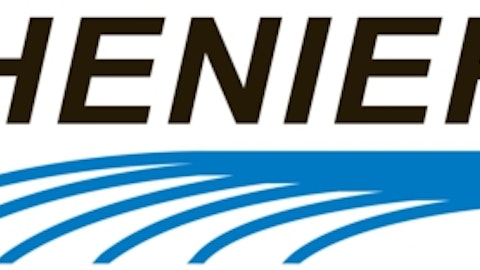In early June 2013, struggling oil explorer and producer Devon Energy Corp (NYSE:DVN) announced that it would spin off a portion of its pipelines and storage facilities, otherwise known as its midstream assets. These would be used to form a publicly traded midstream master limited partnership. This proposal forms an important part of the company’s strategy to unlock value for share holders, through divesting itself of non-core assets.

What does it mean for Devon?
Over the last five years, Devon Energy Corp (NYSE:DVN)’s share price has continued to languish, down by almost 42% over that period. Yet the share prices of other oil explorers and producers such as Anadarko Petroleum Corporation (NYSE:APC) and EOG Resources Inc (NYSE:EOG) have continued to grow. A key driver of Devon Energy Corp (NYSE:DVN)’s poor performance has been a lack of strategic direction and an overconcentration on natural gas, in a market where natural gas prices have softened significantly.
This has seen Devon Energy Corp (NYSE:DVN) focus on shifting its production to higher-margin and more profitable oil production. But in order to do this, the company has had to focus on acquiring and developing oil production assets through an extensive capital expenditure program. For the first quarter of 2013 alone Devon had capital expenditures of almost $2 billion. Still, this was marginally lower year over year by 8%.
Despite Devon focusing on building its oil production, the company still has some way to go. For the first quarter of 2013, only 41% of its total production was made up of oil, with the remainder being natural gas. Devon also reported a net loss for the same period of $1.3 billion, on the back of a non-cash asset impairment charge related to lower oil and natural gas liquids prices.
But Devon’s investment in oil-producing assets is starting to pay dividends. Its Permian Basin oil production in the first quarter of 2013 grew by 24% year over year. This contributed to Devon’s 14% year over year increase in total oil production for the same period. All of which emphasizes that if Devon is to resurrect its fortunes as an energy explorer and producer, it must continue developing its oil assets.
How Will Devon Grow its Oil Producing Assets?
A key plank in Devon’s business development strategy is to unlock value for shareholders by spinning off its midstream assets into a publicly listed MLP. This will allow Devon to free up additional capital that it can use to further develop its onshore U.S. oil-producing assets, thereby boosting oil production. It will also see Devon retain majority ownership of those midstream assets. The MLP will only have a minority interest in the company’s U.S. midstream assets, including its natural gas gathering and processing assets located in Texas, Oklahoma and Wyoming.
Devon is late to the MLP game. Companies such as Chesapeake Energy Corporation (NYSE:CHK) having already recognized and implemented the potential of such a strategy. Still, Chesapeake Energy Corporation (NYSE:CHK)’s experience alone demonstrates how this move will create a significant opportunity for Devon.
Chesapeake is now something of a turnaround story, on the back of shifting production from natural gas to oil and deleveraging its balance sheet. This transition in strategy was in part funded by Chesapeake selling midstream assets to its 30%-owned MLP Chesapeake Midstream Partners. This change in strategy saw Chesapeake report a massive 56% year-over-year increase in oil production for the first quarter of 2013.
Clearly, Devon’s announced strategy of creating a midstream MLP will raise capital for much-needed investment in developing oil-producing assets. This will then allow the company to benefit from the higher margins enjoyed by oil producers as it transitions more of its production away from natural gas. In another advantage, the move will monetize Devon’s midstream assets by providing a tax-effective revenue stream through the creation of a fee-based business model for those assets.
Is a Midstream MLP a Good Investment?
While MLPs – because of their tax effectiveness – may be particularly attractive for investors seeking yield in a zero-interest-rate environment, the key beneficiaries will be Devon’s shareholders. Certainly, unit holders will enjoy the tax advantages afforded by such an investment — but they will miss out on the capital growth that a company such as Devon can generate.
Furthermore, it is difficult to determine exactly how much of Devon’s midstream assets’ operational profit will benefit the MLP, because Devon has yet to announce the structure of the MLP. It is expected that the MLP will file a registration statement with the SEC in the third quarter of 2013. This will then be followed by an offering of partnership units in the MLP. All of these filings will clarify the benefits that will flow through to unitholders.
Foolish Bottom Line
Any move by Devon to unlock value for shareholders and transition further production to oil rather than natural gas will significantly benefit shareholders. This is clearly evident by the strides that Chesapeake has made to turn around its business using a similar strategy. It will also provide the necessary capital to allow Devon to maintain its current growth trajectory, making now the time for investors to take a closer look at the company.
The article Will Devon’s Midstream Spinoff Boost the Company’s Performance? originally appeared on Fool.com.
Matt Smith has no position in any stocks mentioned. The Motley Fool owns shares of Devon Energy and has the following options: long January 2014 $30 calls on Chesapeake Energy. Matt is a member of The Motley Fool Blog Network — entries represent the personal opinion of the blogger and are not formally edited.
Copyright © 1995 – 2013 The Motley Fool, LLC. All rights reserved. The Motley Fool has a disclosure policy.



